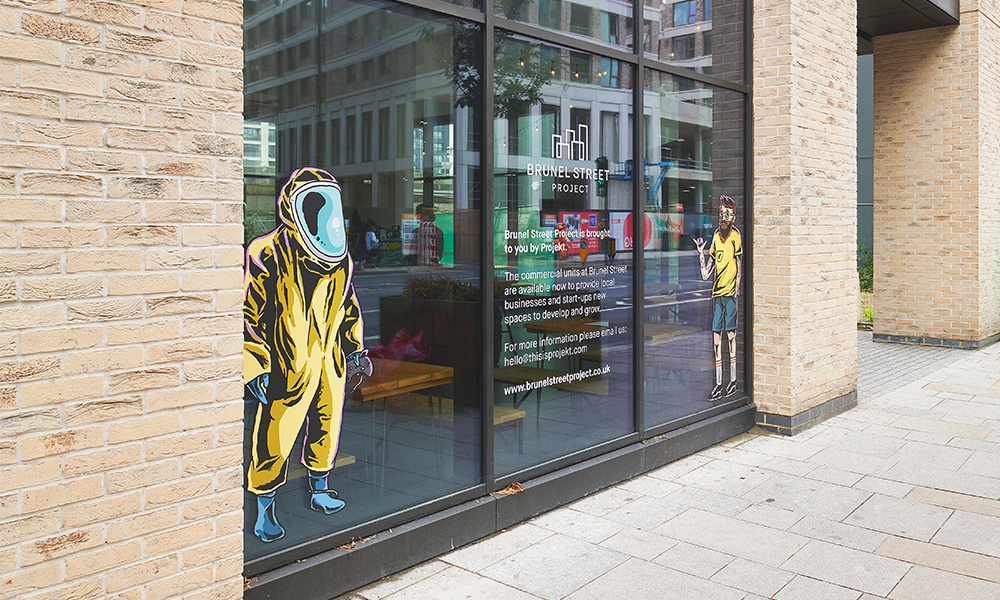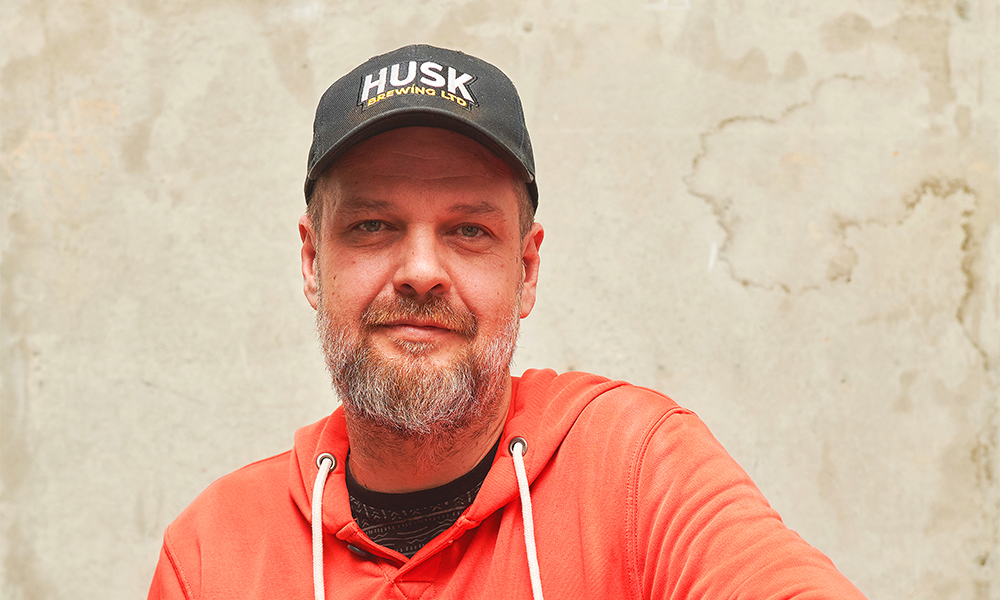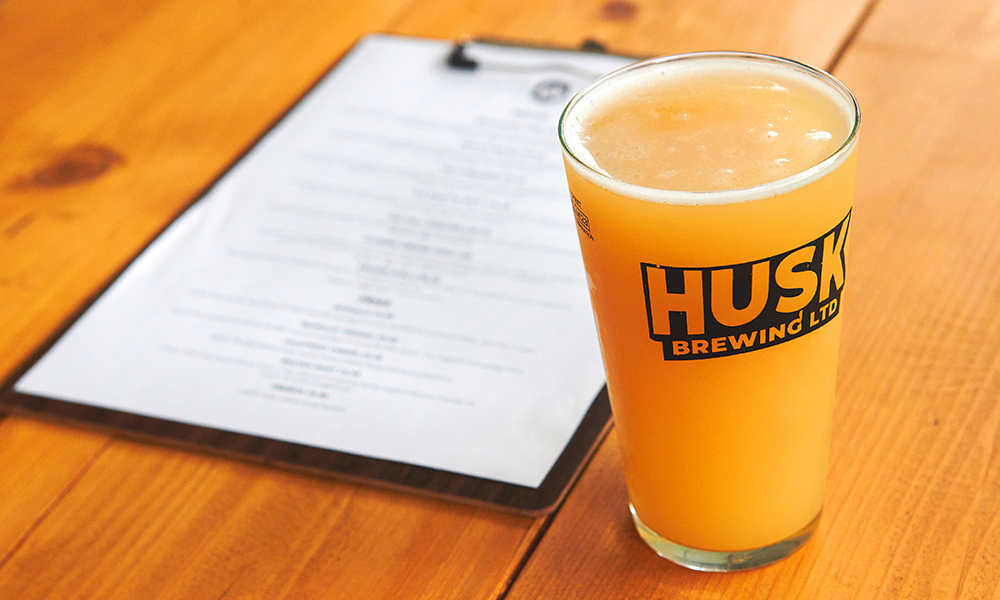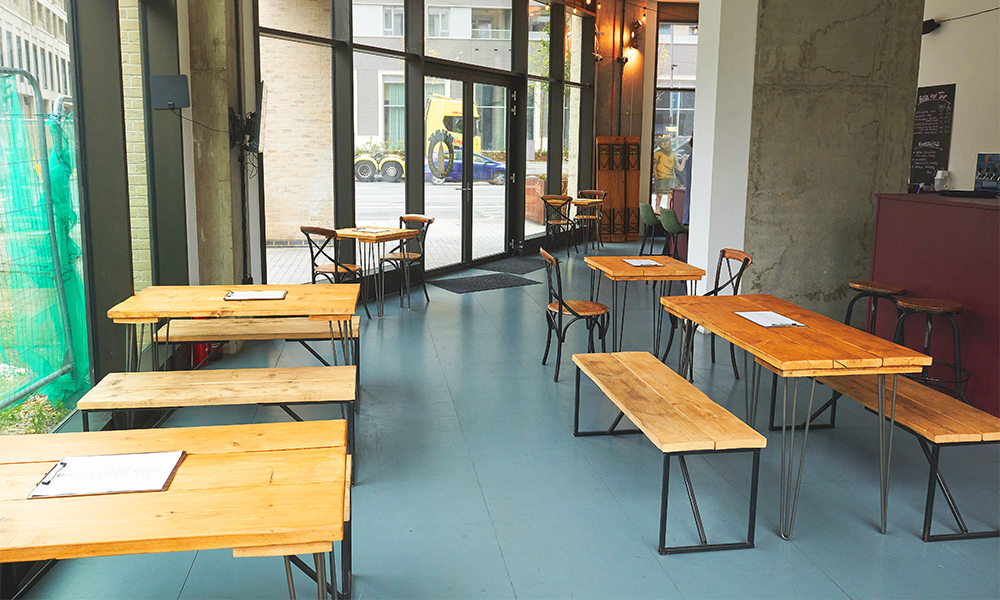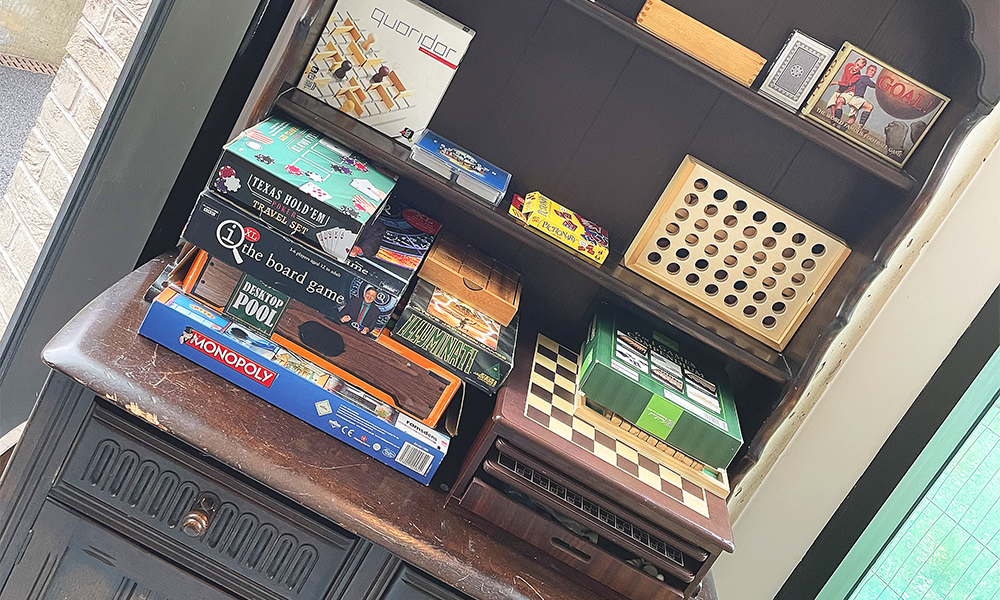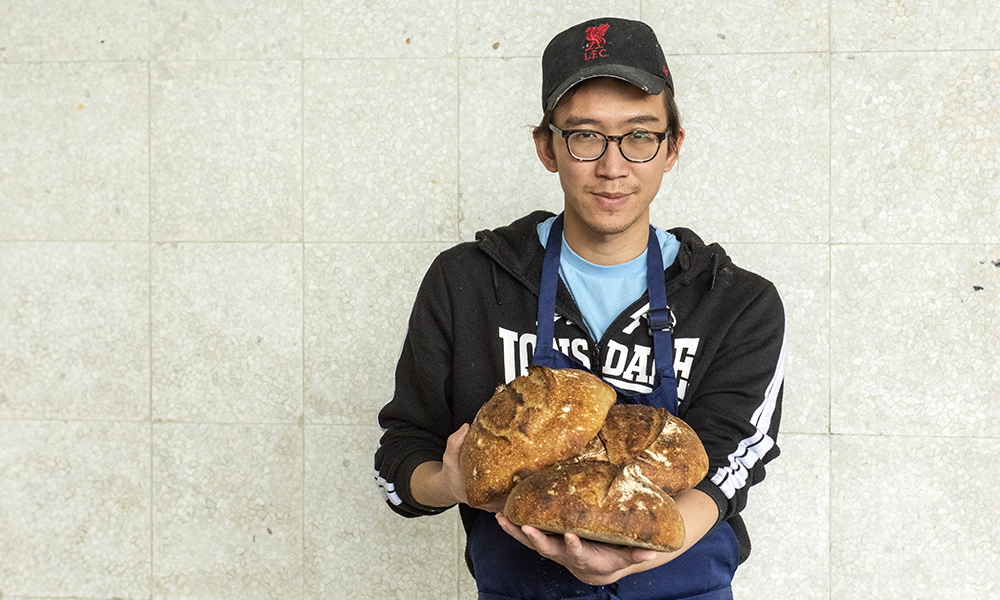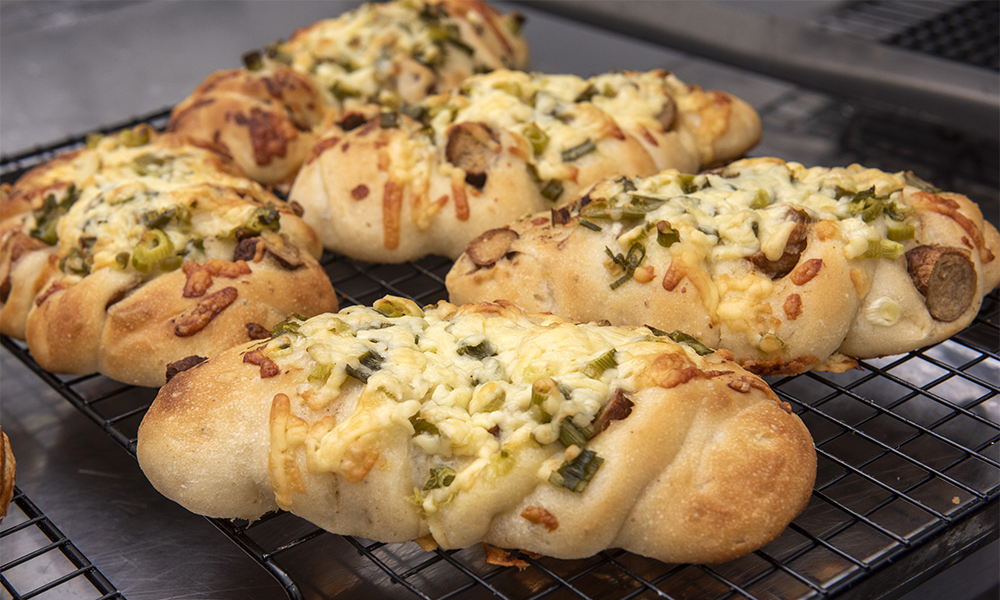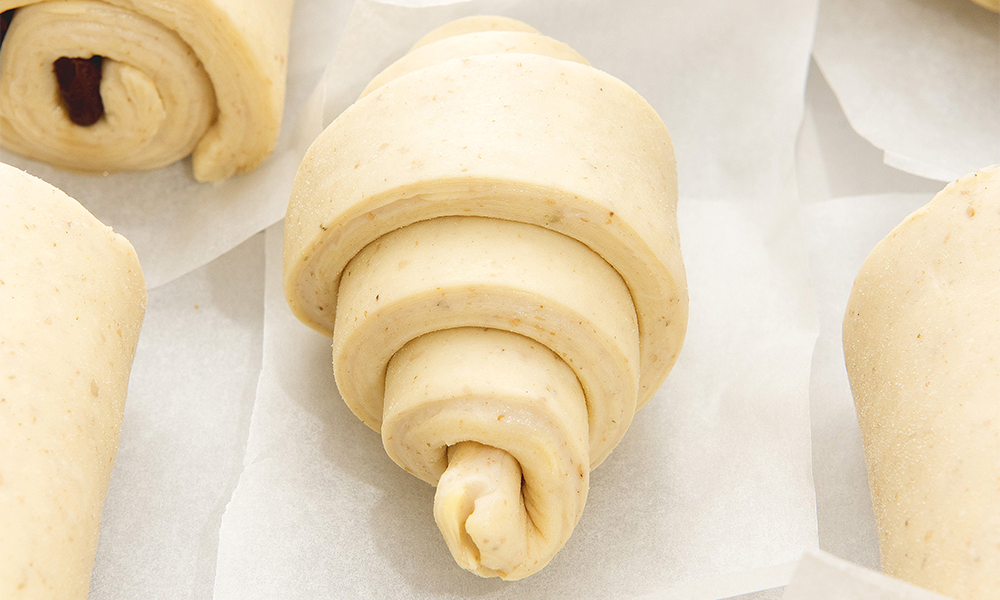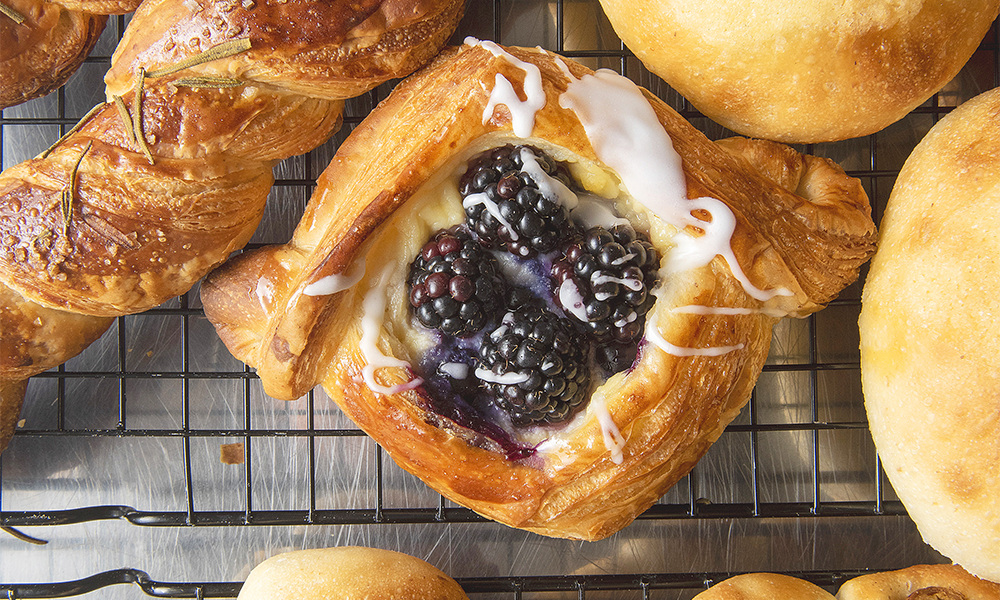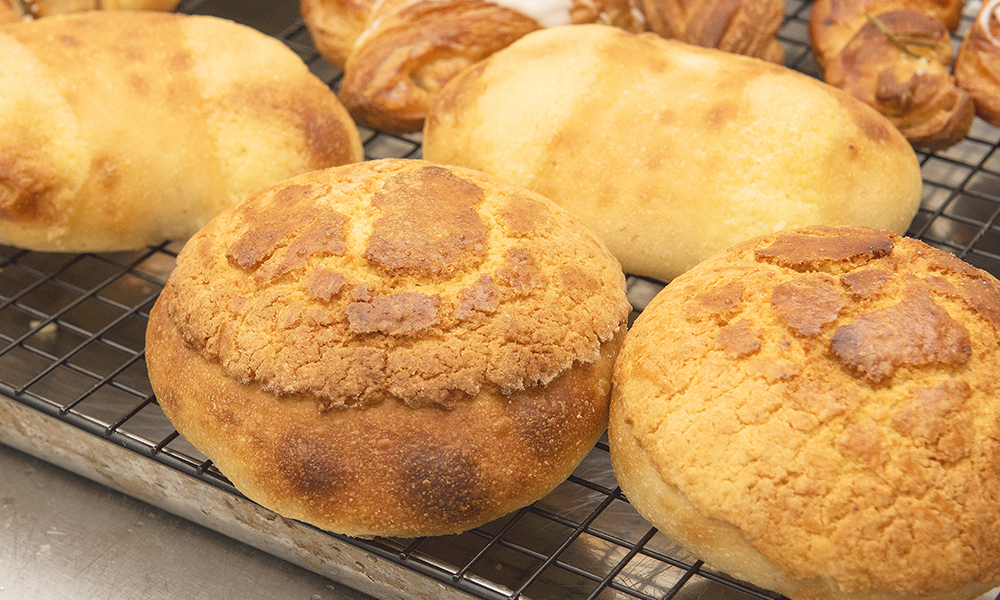Photographer, designer and entrepreneur Steve Nyman has brought his talents together in Royal Docks spaces beside Tate & Lyle
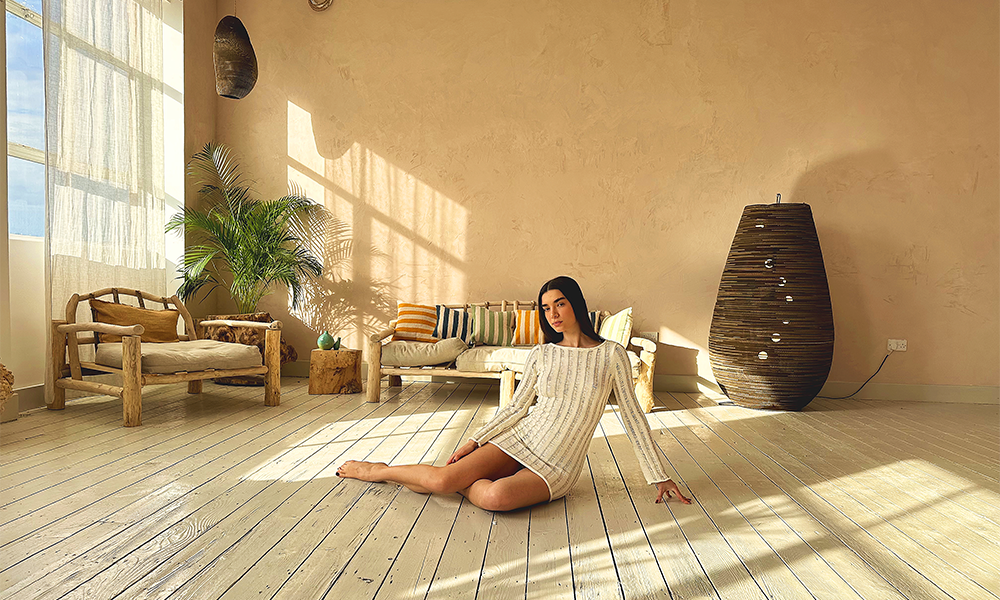
Subscribe to our free Wharf Whispers newsletter here
Venture to the banks of the Thames in Royal Docks and, on a patch of land close to Tate & Lyle’s North Woolwich factory, you’ll find a small forest of logs and tree stumps arranged behind a shipping container.
But this collection of offcuts isn’t a pile of unwanted timber, dumped by an unscrupulous tree surgeon.
It’s the raw material from which two interrelated businesses have emerged.
Steve Nyman knows the power of an image.
Bitten early by the photography bug he was “obsessed with the camera” as a schoolboy, turning that passion into a successful shooting career in the fashion sector that’s taken him all over the world working with models and brands.
However, there was also an underlying desire to explore creativity beyond the lens.
“During the pandemic, I was just sitting there and thinking,” he said.
“I’d always been good at sourcing locations – I guess I’ve got a sense for an aesthetic and an eye for design.
“I love nature and it was on a trip to Thailand that I found inspiration.
“There was this piece of driftwood on a beach that just looked like a coffee table – I wanted to take it home and regretted leaving it behind, although I did bring back an amazing shell.
“I thought that if I could find these kinds of pieces of wood and work with them in England, then that’s what I’d like to do.
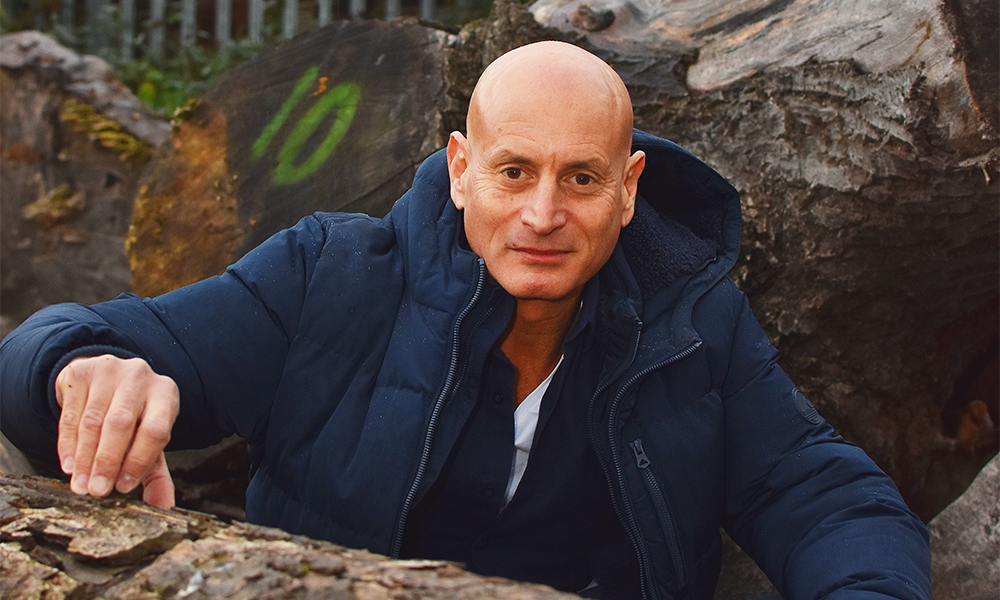
“By chance, I met a guy with a woodworking shop at Thames-Side Studios in Woolwich where I was based.
“I approached him with some of my ideas and designs, started working in his workshop and learnt a lot from him as he turned them into a reality.
“That’s how Hidden Gems Design was born.
“We use pieces of natural wood that would otherwise be burnt or end up in the chipper to create pieces of furniture and sculptures.
“We reclaim them from tree surgeons and give them a new lease of life.
“It’s very sustainable because we’re saving this material from going to waste.
“If it wasn’t for someone making something out of a fallen tree, it would be burned.”

creating Our Urban Oasis
Hidden Gems took off, with Steve’s work in demand from interior designers and a stream of direct commissions, but things haven’t ended there.
In tandem with his furniture business, he’s created a fresh, innovative venture in Royal Docks that’s also proving a hit with clients.
“I live locally and I was scouting around with the idea of opening a photography studio,” said Steve, who also makes ceramic pieces.
“I used to store my wood at The Silver Building which is also owned by Projekt and space at The Factory Project came up so I took it on and opened Our Urban Oasis.
“I now have two photography studio spaces that I hire out and my workshop is also here, so it’s really convenient.”
Both studios are on two levels and, in contrast to the typical blank canvas approach of many providers, Steve has kitted them out with a wide selection of pieces from Hidden Gems that clients are free to incorporate into their photoshoots, videos or other creative works.
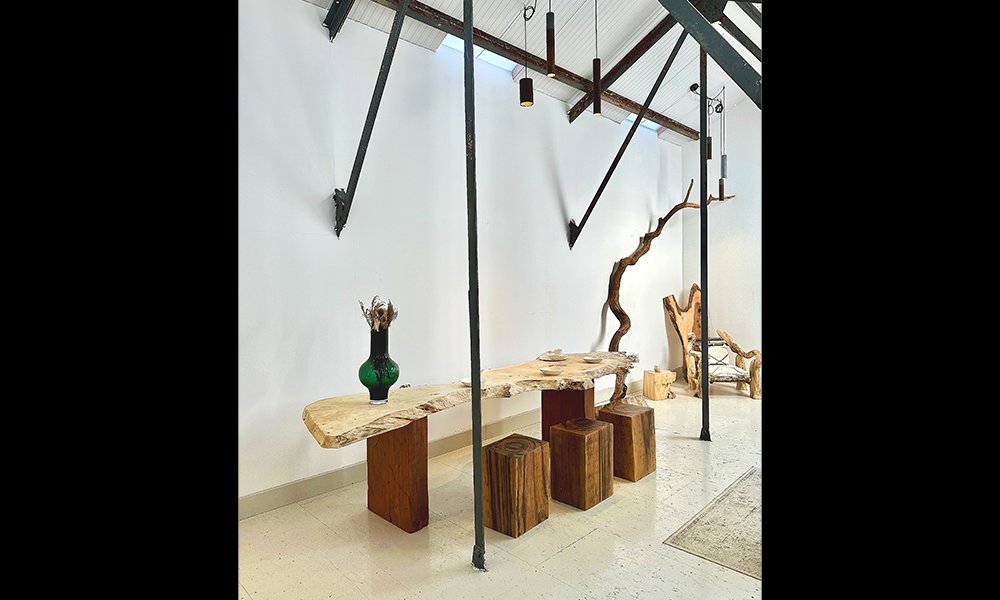
Visitors can even buy the pieces on display, should they so wish.
“A lot of these studio spaces tend to copy each other, but I trust my own tastes,” said Steve.
“I think that if I like it, then there will be other people that do too.
“It’s satisfying to see people enjoying it and we’re very popular. I think people hire the spaces because they want something different.
“I hope they find the furniture and decor inspiring – some of the walls are natural clay.
“It’s a creative space where people can come and it’s organic, they can use it for whatever they want.
“It can be a film set, a place to record podcasts, video content or to do fashion shoots. Everything can be moved around and we have plain backgrounds too so it can be used for e-commerce.
“There’s a kind of zen feeling about it, so I get a lot of people involved in the wellbeing sector using it.”
Steve’s pieces from Hidden Gems fill the space, with everything from sofas and chairs to dining tables and tree stumps on wheels available as props.
“A lot of them feature live edge work – where the bark has just come off and the wood has a natural shape to it,” he said.
“Each piece is truly unique. I could make a new version of a piece we’ve already done, but it will never be exactly the same because the wood will be different.
“I always get surprises with the timber we work with because, until you get it inside the workshop and start to cut it and work with it, you don’t know what it will be like.
“We’ll plane a piece down and it’ll be: ‘Wow, look at that,’ and there’s the inspiration.”
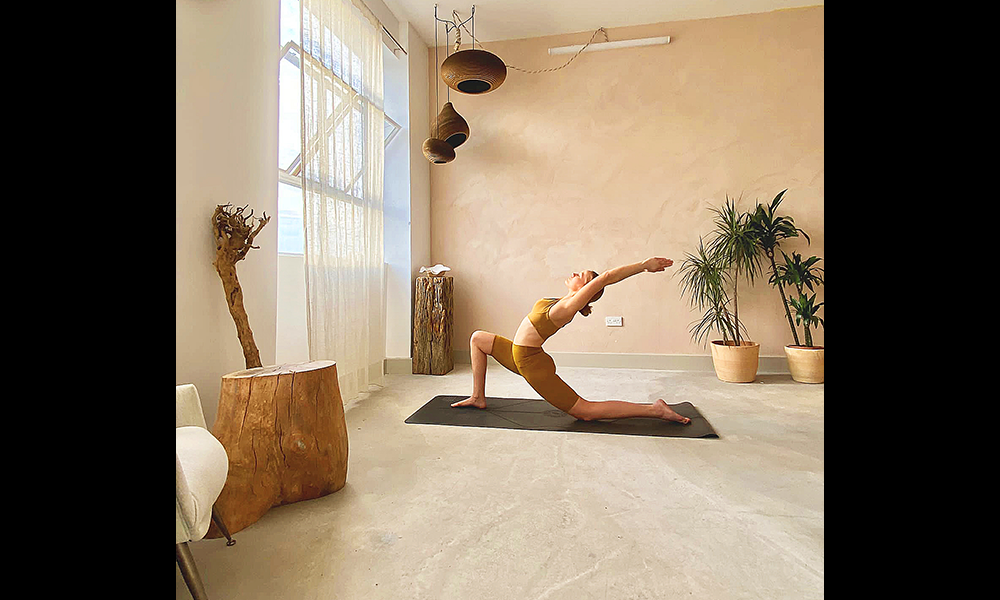
providing flexible spaces
Our Urban Oasis enjoys a varied array of clients with people finding all kinds of uses for the space.
“It’s such a mixture,” said Steve.
“We’ve had celebrities here doing shoots for magazines and we get big fashion brands as well. It’s really surprising.
“We get plenty of natural light and there’s a real summer vibe when the sun is streaming through the window.
“The building itself is very secure and I think people sometimes wonder what they’re coming into when they arrive at the gates because of The Factory Project’s industrial history, but it also means we’re nice and quiet.”
That’s likely to be of special benefit for Our Urban Oasis’ forthcoming evening of Candlelit Yin Yoga And Sound Bath.
The event is set to take place on December 7 from 4pm to 6pm and will be led by Yoga and Pilates teacher Suzan Altay.
Tickets for the event, which include home made muffins and herbal tea, cost £40 per person and are available online via this link.
Fitting for the flexibility of the space, that this event offers a fresh dimension to the possibilities amid Steve’s sculptural creations.
key details: Our Urban Oasis
Our Urban Oasis offers a range of studio spaces at The Factory Project in Royal Docks, decorated with pieces from Hidden Gems Design.
Steve’s pieces are also available to purchase online and he remains available for interior commissions
Find out more about the studio spaces here
Read more: How Mike Joslin’s Bombe uses tech to help companies understand customers
Read Wharf Life’s e-edition here
Subscribe to our free Wharf Whispers newsletter here
- Jon Massey is co-founder and editorial director of Wharf Life and writes about a wide range of subjects in Canary Wharf, Docklands and east London - contact via jon.massey@wharf-life.com




